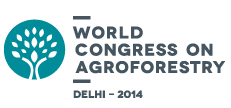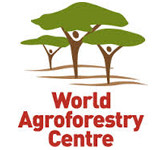
Vigyan Bhavan & Kempinski Ambience
10 - 14 February 2014
Delhi, India
blog

Some scientists and businesses think they can help us bypass a fiery doom by developing new products that do less harm to the planet and poor people. Let’s hope they’re right this time.
Scientists and businesses have thought they’d got it right before. Like in the Green Revolution of the 1960s: chemical fertilizers, herbicides and pesticides were widely introduced along with new crop varieties, leading to increased yields that saved the world from starvation.
Problem was it also led to widespread pollution—with serious, long-term, negative effects on the health of humans and ecosystems—and the conversion of forests to intensive agricultural production, which has helped warm the planet and force everyone to rethink how we feed ourselves.
So will the new Sustainability Revolution have its own downside? Truth is, no one knows. We have to try it. And test whether the ‘new paradigm’ can deliver on its promises of improving poor people’s livelihoods while protecting the environment.
What’s being done?
Scientists from the World Agroforestry Centre are working alongside large multinational food companies to bring Allanblackia into widespread production as part of smallholders’ agroforests in Africa. In case you haven’t heard of it, Allanblackia is an oil-producing tree native to parts of said continent.
The scientists claim that the oil is superior to that produced from oil palm and that the tree is kind to African environments when grown by local farmers on their small pieces of land.
The European Union wants to buy 100,000 tonne a year for use in food, soap and the like. But export in 2012 from the three producer countries—Tanzania, Ghana and Nigeria—was only 210 tonne.
That’s a large gap between demand and supply. And so enters the alliance of scientists and companies, to spread the good word about the tree and find, grow and distribute the best seeds and seedlings. They are training farmers in what to do with it: planting, maintenance, harvesting, processing, transport and marketing. In another few years, the 8 million or so trees that are needed to meet the demand will be planted and farmers’ livelihoods will be improved along with the environment.
Meanwhile, in Colombia
A commodity-trading firm has been working with local communities on the margins of one of the world’s last remaining highly biodiverse natural forests. About ten years ago, the firm was asked by a development agency if they could find a way to make money from carbon trading and so protect the forest and help the locals.
The firm found they couldn’t: carbon markets were young, unstable and had low returns. But they thought they might be able to make money from working with the communities to establish commodity crops on degraded land.
They talked for four years about it. First they talked about oil palm. But they found there were problems with the biophysical conditions. So they turned to cocoa. The demand for chocolate was increasing and supply was falling globally owing to pests and diseases and aging stock.
To get the highest return for their investment, they settled on high-quality cocoa species because buyers were willing to pay a premium, which helped to offset the cost of the necessary certification.
And so they started planting. Now they have 1200 hectares and will expand to another 1000. As well as cash, there have been other benefits, such as helping to protect mangrove forests and biodiversity, and a general improvement in community wellbeing.
The firm sees that the challenge is to transform this successful project into a successful business. To do that they need a critical mass of cocoa-producing trees, professional management and profits that will allow the venture to get access to finance and expand.
According to the firm, the whole project isn’t about ‘corporate social responsibility’ but the development of a new ‘environmental markets’ business. For them, it is the ‘way of the future’. The Colombia project is an initial experimental investment which will eventually result in a financial return.
Meanwhile, at the World Congress on Agroforestry
At the Congress, several senior corporate executives were being quizzed about their companies’ commitment to environmental certification of various products. Did they believe that such certification would help save the planet and make them, and the farmers, richer?
No, not really. Rather, certification of products as ‘environmentally friendly’ wasn’t considered terribly important or effective. What was important, they said, was collaborating with smallholding farmers in developing countries to achieve the outcomes that everyone wanted: more income and a healthy environment. They had realised that if they wanted to survive not only as businesses but as individual humans, they needed to do business in a more holistic way.
So it does seem, if schemes like these work and the model of sustainable cooperation for environmental and economic benefit becomes widespread, that capitalism might indeed be able to adapt to save not only itself but also the planet.
Blogpost by Rob Finlayson
Picture courtesy David Miller






One Person has left comments on this post
As a scientist whose ultimate goal is to have impact in the farmers context, I have seen the necessity to work with the big guys. As long as our fundamental system, that is captitalism, won’t change, this is the only way to go. At least if you are thinking big. What puzzles me is the question of how serious CEOs of big business are, when they make statements like these. I agree and share the impression that they have realized that win-win situations are not only an asset, but a necessity. Let us hope this will happen sooner than later!